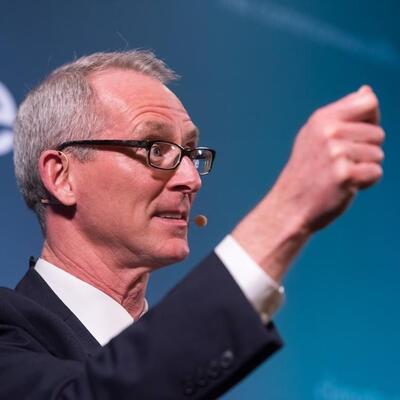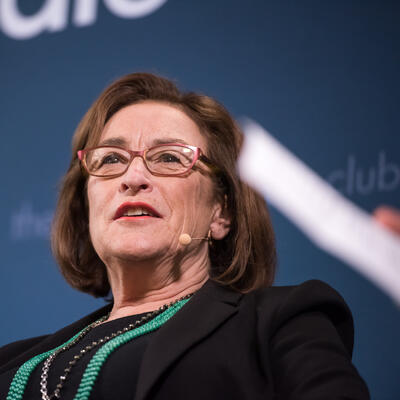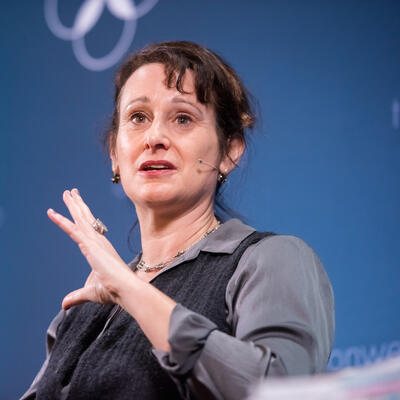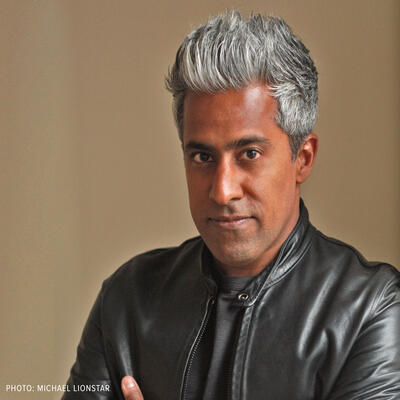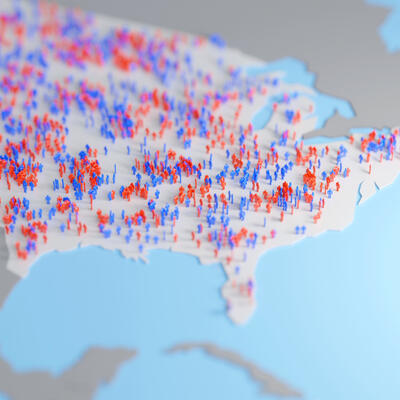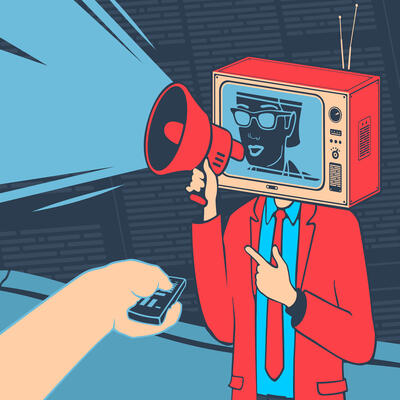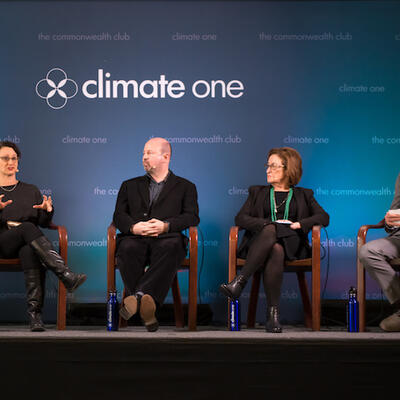
Is Climate Denial Destroying Our Planet?
Guests
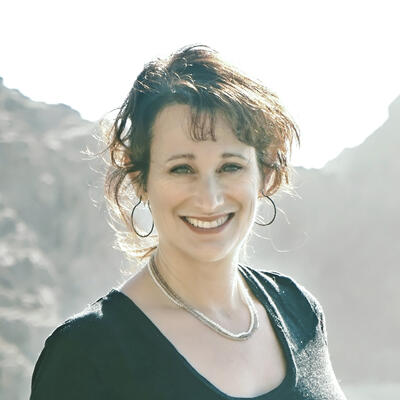
Renee Lertzman
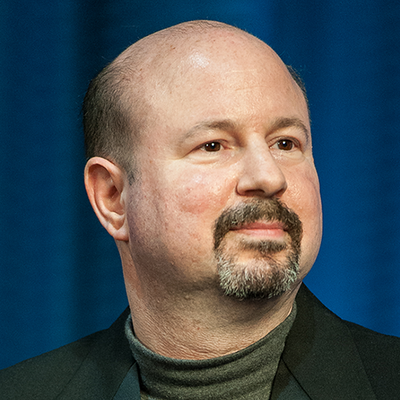
Michael Mann
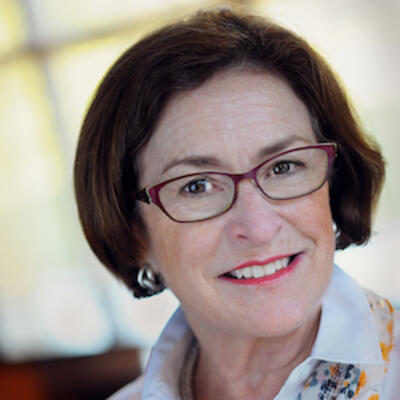
Cristine Russell
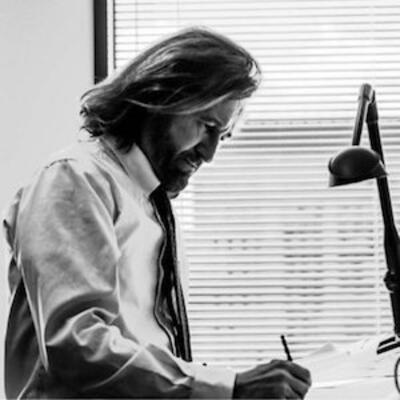
Tom Toles
Summary
Climate denial has become both a psychological and a political problem. Can better communication help us expand common ground and move on to solutions?
Renee Lertzman, Climate Engagement Strategist, Author and Speaker
Michael Mann, Distinguished Professor of Meteorology, Penn State University
Cristine Russell, Freelance Science Journalist
Tom Toles, Editorial Cartoonist, The Washington Post
This program was recorded in front of a live audience at the Commonwealth Club of California on December 12, 2016.
Full Transcript
Greg Dalton: From the Commonwealth Club of California, this is Climate One, changing the conversation about America's energy, economy and environment. I'm Greg Dalton. And last night, I had a glass of wine with dinner. Well, two actually. In California, wine bottles and stores carry signs that say drinking alcohol may increase cancer risk. Does that mean that Americans who drink and I are in denial about alcohol and cancer? In the show today, we will discuss many forms of denial from a little bit won't hurt me to burning fossil fuels isn't warming the earth. Experts say some denial is human, normal and necessary and also can be manufactured and dangerous. Here at Climate One we often come at questions from different disciplines and perspectives. And today on the show, we’ll hear from a scientist, a journalist, psychologist, and an editorial cartoonist. Along the way will include questions from our live audience here at the Commonwealth Club in San Francisco, which includes people living in denial about many, many things.
Michael Mann is distinguished professor of Meteorology at Penn State University. He is co-author of the new book “The Madhouse Effect: How Climate Change Denial is Threatening Our Planet, Destroying Our Politics and Driving Us Crazy.” Renee Lertzman is an author and speaker who focuses on the psychological aspects of climate in the environment. She’s the author of “Environmental Melancholia: Psychoanalytic Dimensions of Engagement.” Cristine Russell is a veteran science journalist. Her writing has appeared in Columbia Journalism Review, Scientific American, The Atlantic and The Washington Post. She’s a senior fellow at Harvard University's Kennedy School of Government. Tom Toles is editorial cartoonist from The Washington Post and author of the Tom Toles blog. He’s won many awards, including the Pulitzer Prize for editorial cartooning. With Michael Mann, he is co-author of “The Madhouse Effect.” Please welcome them to Climate One.
[Applause]
Welcome to all of you. I want to begin by playing a clip. We went out and found a climate denier. We figured we wouldn't have a whole lot of them that perspective on stage and in the audience today. So we wanted to be sure that that was heard. So we went out to a grocery store in Richmond, California and we found David Erlich. Who is a chair of the Republican County, Republican Party in Alameda County. Let's hear what David Erlich has to say.
[Start Video Clip]
David Erlich: My name is David Erlich. I’m from Los Angeles, California but I currently live in San Leandro. I’m an electrician by trade and I am the current chairman of the Alameda County Republican Party. When I was in junior high school the big thing is we’re all gonna freeze to death because there’s a hole in the ozone layer. We can’t use aerosol sprays anymore. I remember, my mom was a big hair gal in the 80s and she liked her hairspray. She thought it was gonna be taken away. That seems to be forgotten about. We've gone from it’s gonna freeze us all to death to global warming to now it's climate change. The carbon tax is being implemented because of it. It's not right. It’s not right.
I’m not saying that there isn’t climate change. There is climate change, because if you go the definition of climate change, the climate has changed from this morning to this evening. It depends on what scale you want to look at it. If we’re looking at coming out of the ice age, and now we are warming, that’s where we’re at.
So that would be a natural progression. I don’t really believe there's 99% that of the scientists and what class of scientists. And most of meteorologists I know don't subscribe to the type of global warming that we’ve been told we’re involved in. We need to be working on alternative energy, period. Because not just because of any damage we can do the climate, or any damage we can do to earth change the climate because it's economically right, its advancement. Really, what we’re looking at is economics because we’re looking at a financial disaster that will do us in quicker than any global warming at this point in time.
[End Video Clip]
Greg Dalton: That's David Erlich, electrician who we talked to in Richmond, California. He is chair of the Alameda County Republican Party and we sent journalist Andrew Stelzer out there to talk to him. Michael Mann, there's a lot in there to unpack; some of that that first of all climate and weather, the difference there, how do you respond to his views which represent a lot of what we hear in the climate debate?
Michael Mann: How long do we have here?
[Laughter]
Well, you know, I think it's easy to vilify somebody like that. You know, it would be easy for us to laugh at, you know, some of the – with some of the ignorance that is portrayed in that segment. But to me he is an example of, you know, someone who's really a victim. He is not the enemy. He is a victim of a massive misinformation campaign that we’re fighting constantly when it comes to the science of climate change. And you can hear that in the litany of talking points because he is essentially delivering standard sort of climate change contrarian, climate change denial talking points.
He got some of them mixed up, of course, the ozone layer is a completely different issue from climate change and no scientists weren’t talking about cooling in the 1970s.
There were some scientists who looked at the competing nature of particulates that were cooling the planet because of dirty coal burning and greenhouse gases and these two effects were pushing the climate in different directions when we passed the Clean Air Acts in the 1970s to take those particles out industrial emissions and of course that unmasked the hidden warming that has emerged in the time since then.
So I think what's also important to understand just in the logical progression is that those talking points were really just a way to justify an ideological position. And then you saw where he was coming from. There’s this quote that I love attributed to James Inhofe a very well-known senate climate change denier from Oklahoma and he once said something to this effect, he said, “I used to believe the science of climate change until I learned how much it would cost.”
[Laughter]
I think that statement really betrays sort of the underlying mental process that's at work and I'm sure Renée can shed some additional light on that. So I think it's important to understand that in the end this person comes out on the right side of the issue and maybe there's some internal conflict, maybe he ultimately understands that there is a problem here. He doesn't want to explicitly mention it because, you know, climate change is sort of for the tribe that he belongs to, it's ideologically inappropriate to concede that climate change is real, but in his heart he sort of knows that it is and he knows the right thing is to move in the direction of clean energy and he's actually helping in that effort.
Greg Dalton: Renee Lertzman – I mean, I made the question of whether does science is even relevant. He's been installing LED lights, right? Who cares what he thinks about science, right? He is – he is installing clean energy. Science is complicated, it's abstract. Do we focus too much on the science and is it more emotional things that people respond to?
Renee Lertzman: Yeah, absolutely. Well, that example illustrates how incredibly complicated this is but more so that as humans we’re capable of tolerating and managing a lot of contradictions in ourselves and in one another. So, yeah, I mean what I'm reminded of in seeing that clip and in Mike's comments is, when we're confronted with information that brings up conflict with our beliefs, our worldview, our, you know, ideology whatever, our mind will actually generate incredible strategies to deny, repress and basically avoid our engagement with the situation and with the reality. That's just neurologically, you know, from a neuroscientific perspective that's what our minds do. When conflict is introduced our neural networks are activated and we actually do seek out scenarios that help us stay in alignment with a worldview.
And I would add that I think the reason why the messages in the discourse have efficacy and land with people is precisely because there's an incredible difficulty in coming to terms with what’s happening. So, you know, I’m also reminded in the interviews I’ve done with Republicans around climate change, hard-core skeptics, that we see exactly what we’re talking about and what Mike was mentioning is a lot of vacillation between recognition and acknowledgment. Somehow, you kind of know that they know deep down that something is up but they can’t allow themselves to go there because of my, you know, identity, affiliation, it doesn’t feel safe or acceptable to do that. Our job is to try to make it more safe, to give one another permission to actually go there.
Greg Dalton: Cristine Russell, has the media done a good job doing that?
Cristine Russell: Well, first of all, the media is a plural word and so l think –I’ve seen a number of nostalgia pieces recently, remember the good old days of Walter Cronkite where that's the way it is and I think people, particularly in this post-election period, are really realizing that again a lot of the polarization and the kind of thoughts that we were hearing in that view of the climate denier is because people are getting their information from so many different sources. And so one of our problems if you are in mainstream news media is getting people the information and people are still getting a lot of information from television, but they are also getting it from selected sources of information that reinforce what they think to start with.
And so we don't have that collective wisdom and I think one of the challenges for science, for journalism, for any field is how do you get a better, more educated audience on some of these areas of science. And back to the point you made, I don't think people have to be scientists and looking at the conversation he was having as the electrician about his beliefs as if somehow he could sort out the science. And so we’ve lost some trust. And I think the news media has also lost a certain amount of trust and people are blaming the media and certainly in this election campaign, particularly on the Republican side, the media is as much a target as everybody else. And so we, I think in the news media, in mainstream journalism really have a challenge to try to reach out in a bigger pond and reach other people than just preaching to the converted.
So I think we really have a challenge and I think we have a lot to cover in the coming months, that's for sure.
Greg Dalton: We’re going to go to our other member of the news media in just a minute, Tom Toles. First I want to show you another clip in a recent episode of National Geographic's climate change program, The Years of Living Dangerously. Jack Black talks to a psychiatrist, Lise Van Susteren. Jack Black is sitting on a beach laying back and there’s a psychiatrist sitting in a chair with a pencil and a pad next to him. So here's Jack Black talking about climate change.
[Start Video Clip]
Jack Black: What we know is coming, is sea level rise three feet, six feet, 12 feet? What is it that keeps me from really believing or wrapping my head around these facts?
Lise Van Susteren: Here’s your premise that’s wrong. You were thinking that our brains are only rational, and they're not. Our brains are wired in part to deny unpleasant emotions. There is a part of our brain which is highly rational, analyzes data, takes in information, and then there's the emotional part of the brain. The emotional part of the brain is extremely powerful.
Jack Black: And it feels more comfortable just to shut down the scientific part of my brain and just enjoy the right now.
[End Video Clip]
[Laughter]
Greg Dalton: That’s Jack Black in Years of Living Dangerously talking to the psychiatrist Lise Van Susteren. Tom Toles, humor gets to a deeper level, perhaps get to that emotional level. So how do you approach climate change in the cartoons that you've done in the book?
Tom Toles: Well, my answer will fall back into some of the previous video too. I mean, we were just talking about has the news media been helpful on this.
And I would say that over the last 30 years on this topic and I agree that media is a plural, but I think in over the last 30 years the media has been in the aggregate, I mean essentially abysmal at covering the climate issue both in terms of the way they defaulted into the easy formula of both sides. That's one problem. The other problem is not taking the enormity of the problem seriously at all and relegating it as kind of a side issue, a page 6 issue. The analogy, I mean, cartoonists think in visual terms, but the analogy is this is an asteroid coming at Earth and, you know, everybody says, oh what if an asteroid hits us someday. This is essentially the same thing. The science of the matter is very clear now.
We can see that asteroid growing in the sky every day and we’re confronted with the news media that for some reason doesn't care to cover the story of the asteroid that's going to hit us particularly. And when they do cover it, they cover it and have covered it, it's getting a little better now but they've covered it while we’re gonna talk to a scientist that explains that the asteroid is the size of one that hits the earth in this place. It's going to do this amount of damage. You can measure and calculate this and now we’re gonna to an electrician who works [Laughter] who works for the Republican Party and ask him if he thinks that the asteroid is there [Laughter] or whether it's similar or different to other aster asteroids that may or may not have been there or rumors of asteroids or mythological animals.
[Laughter]
I mean, I find it – I think is an excellent place to start a discussion, but I think it's actually a little bit offensive that this electrician is given even that much time. I agree. Actually, my real answer is to listen to the answers that were given before because Michael's answer was perfect. Individuals as a human being is not the enemy but – and I agree with everything he said about it, but in practicality actually, yes he is the enemy. And the enemy is also taking this guy’s completely incoherent understanding of the issue as representing something other than a massive problem. I mean, I just hope to God that he understands how to wire a house [Laughter] better than he understands what he was saying about his understanding because it didn't even add up to anything. I mean, if you wired a house the way he was talking, the whole thing would burn down on a day. And I would say not only don't hire this guy to install your wiring, I would say also don't join any political parties that this guys is associated with.
[Laughter]
But anyway, what was the question?
[Laughter]
Greg Dalton: Renee Lertzman, in all fairness, that gentleman who spoke to our reporter isn’t here to defend himself and it may get laughs but is it right to villainize people like that?
Renee Lertzman: Right. So no. I think we’re all in agreement on that point. I just want to follow on Tom’s comment about the asteroid. So I will actually clarify.
The difference between an asteroid and climate change is that an asteroid is external to us and climate change we’re all living within the systems that are producing the issue and that is what makes it fundamentally a profound psychological and social quandary and dilemma because we will as humans deny and defend till the bitter end if we feel that – and one of the things that came up in the video is loss so his mother was afraid that something that she’s attached to is gonna be taken away.
That’s going on at a collective social level, and I think humor is one of our most powerful resources for effectively disarming the human defense mechanisms. I mean, Freud knew this, many psychotherapists noticed that humor can be very disarming in addition to other mechanisms, other strategies that help disarm and that includes the ability to say, look, you know, this is scary, this maybe feels overwhelming. I don't want this to be true as well so it shows some empathy. I mean, God knows I wish this wasn't true. But it is and that's why we all, you know, so you move on from there.
Greg Dalton: We’re all part of it. If you're just joining us, Renee Lertzman is an author and environmental psychologist, Michael Mann is a professor of meteorology at Penn State University, Cristine Russell is a veteran science journalist, a fellow at Harvard's Kennedy School of Government, and Tom Toles the editorial cartoonist at the Washington Post. I'm Greg Dalton.
Mike Mann, I’d like to ask you about a real legitimate villain perhaps, Frederick Seitz was former president of the National Academy of Sciences, president of Rockefeller University, won many awards and he you write in your book The Madhouse Effect is a founding figure in the art of modern-day science denialism. So tell us how such a distinguished figure went to the dark side.
Michael Mann: Yeah, you know, I have some personal connections with Seitz in a sense. He was a solid earth physicist, a very distinguished – sorry, not a solid earth but a solid state physicist.
Renee Lertzman: Flat earth.
[Laughter]
Michael Mann: So studying how materials work and that's where I got my start in physics as well at UC Berkeley, I was studying in that area, and ultimately he became president of the Rockefeller Institute, a member of the National Academy of Sciences. He actually became president of the National Academy of Sciences. So when people say, you know, well how is it that, you know, somebody that smart cannot get it, cannot get the science of climate change. It's not a matter of intelligence. I think we have to recognize that there are ideological issues at work and in his case; he actually ended up receiving I think something like $70 million from R.J. Reynolds Tobacco to found an institute whose primary function would be to attack the science linking tobacco and human health.
And there's a famous saying attributed to Upton Sinclair, it's very difficult to get a man to understand something when his salary depends on not understanding it. And so I think we have to recognize that there is denialism that comes from exactly the place that Renee is describing. There are various strains of denialism. Some of it comes from, you know, a self-interested sort of origin as well and I think in some sense that's the more challenging a denialism to access and may be convert and turn around because it's so self-interested and it’s so tied to ideology.
I don't think any amount of information was going to convince the president, a former president of the National Academy of Sciences that he was wrong about this science. I think he was absolutely convinced that he was right and he was convinced that he was doing the right thing from a political standpoint. I think that's a harder nut to crack. I think it's a part of what we face, the fact that climate change denialism that people like the electrician that we’re talking about, as I said before I see him as a victim of a campaign, a massive disinformation campaign, the same interests.
Some of the same talking heads who were working for the tobacco industry decades ago denying the connection between tobacco and climate change are today receiving money from fossil fuel interests to undermine the public's understanding and policymakers’ understanding of the science of climate change. And that is a – well, suffice it to say that those people to some extent were operating in the shadows, given the latest round of nominations for various departments in our presidency, those people may now be controlling the reins of government and that's something we haven't seen before.
Greg Dalton: Tom Toles, you’re gonna have a lot of fun the next four years.
Tom Toles: Only if you find describing the eminent decline and destruction of the planet, the ecosystems, the economic base, the political base and pretty much everything that we have come to depend on and love about the planet and our way of life and our fellow man, if you can enjoy the process of watching the dissolution and destruction of all that, I’d be having a great time.
[Laughter]
I agree with Renee. And I mean, climate has been described as the political policy problem from hell and the recent research on the way the brain functions, the way it has involved as a many tracking system, some of which some of the tracks are rational, some are instinctual, some of them are selfish, some of them are social. That is the fundamental base on which this issue has fallen and that it's abstract. It asked for sacrifices now for a vague threat later and all of that is true. This is not the first time this has happened. I mean, almost every environmental issue has played into this psychological trap to a certain extent. I think the electrician referencing to the ozone hole was probably the most directly applicable, although he didn't seem to understand the difference between that and the climate issue.
But there again, it was aerosols are going to do something, we have to change the product that we are familiar with, comfortable with, economically secure with to fix a problem that is described as molecular interaction that is destroying something that a layer that no one had ever heard of before that was going to cause cancer. That was also a problem very much like this only in some ways at a smaller scale, although that was also globally a fairly significant one. But the fact of the matter is, we did solve it. Human beings can solve this. The climate problem is the same psychological problem. I'm sorry for going on this; I’ll finish in a second. The psychological problem is there, but you take away the specific directed focused targeted misinformation campaign from the fossil fuel industry, this problem would look entirely different.
The public opinion and even the opinion within the Republican Party and I use that as a generic, not necessarily always in every case, every Republican, but even the positions and policies within the Republican Party were starting to come around; that has changed. The science has only gotten stronger. It's the money that is contaminating this problem and now that all that has flowed into an overt political machine that is occupying the American government right now.
Greg Dalton: Tom Toles is the editorial cartoonist for the Washington Post. We’re talking about climate denial at Climate One. I'm Greg Dalton.
I’d like to go to our lightning round which is a series of quick questions and quick answers for our guests today. This is a word association; I’ll mention a noun and ask you to just mention the first thing that pops into your head starting with Tom Toles. Rex Tillerson.
Tom Toles: George Orwell's 1984.
Greg Dalton: Mike Mann, the late climate scientist Stephen Schneider.
Michael Mann: A ray of hope.
Greg Dalton: Cris Russell, economist Bjorn Lomborg.
Cristine Russell: Denial.
Greg Dalton: Renee Lertzman, Donald Trump.
[Laughter]
Renee Lertzman: Narcissist.
Greg Dalton: This is a yes or no, true false question for Mike Mann. A primary reason Americans haven't taken more action on climate change is they lack the basic facts about burning fossil fuels.
Michael Mann: No.
Greg Dalton: Renee Lertzman, true or false. Facts change people's minds.
Renee Lertzman: False.
Greg Dalton: Tom Toles, yes or no. Many Americans want to revisit high school science.
Tom Toles: No.
[Laughter]
Greg Dalton: Cris Russell, yes or no. Talking about science makes the climate conversation unnecessarily complicated and boring.
Cristine Russell: Yes.
Greg Dalton: Mike Mann, yes or no. You have climate deniers in your family.
Michael Mann: No.
Greg Dalton: Cris Russell, yes or no. The intel on human cost climate change isn't 100%.
Michael Mann: I got the reference.
Cristine Russell: It’s virtually. I guess this is yes or no, right?
Greg Dalton: Yes or no.
Cristine Russell: I guess no.
Greg Dalton: Tom Toles, yes or no. Tragedy is hilarious.
Michael Mann: That's a quote from me.
[Laughter]
[Crosstalk]
Greg Dalton: But you got it from someone else.
Cristine Russell: And actually Tom has a cartoon on that number where the cartoon says it's 100% of scientists and then there's a correction on the news, no it’s 99.5% and the person at home said aha, you know, something is wrong.
[Laughter]
So I have to think through that cartoon.
Tom Toles: It's in the book, it's in the book.
Greg Dalton: The madhouse effect. Renee Lertzman, yes or no. One of the most primitive defenses is villainization.
Renee Lertzman: Yes.
Greg Dalton: Also for Renee Lertzman. Villainization is going to be the ultimate downfall of the climate movement.
Renee Lertzman: Yes.
Greg Dalton: This is for Tom Toles. Yes or no. Walter White would be an excellent choice to run the drug enforcement agency.
[Laughter]
Tom Toles: I’m not even going to answer.
Greg Dalton: That’s Saturday Live last week. Cris Russell, yes or no. Donald Trump is stepping away from making his businesses bankrupt to bankrupt the country.
Cristine Russell: Yes.
Greg Dalton: Got that from Andy Borowitz in the New Yorker. Last one, Renee Lertzman. Kelly Anne Conway told Fox News that while Trump could bankrupt his companies in the country at the same time he owes it to the American people to put them first.
[Laughter]
Michael Mann: You answer that.
Greg Dalton: That’s Andy Borowitz also from the New Yorker. Thank you. Let's give a round to these guys at Climate One.
[Applause]
[CLIMATE ONE MINUTE]
Announcer: How do we find common ground with climate deniers? Climate change is no laughing matter, but as we’ve heard, humor can be one way to take the edge off of that conversation. Yoram Bauman, who calls himself “the world’s only stand-up economist,” finds that sandwiching in a few jokes can help his audiences digest some of those inconvenient truths.
Yoram Bauman: Because it’s about establishing sort of a human relationship. Generally I do an hour long routine and I’ll spend five or ten minutes talking about carbon pricing and I think about it as sort of the pill that you put inside the ball of meat that you feed to the dog, right? It’s not necessarily their favorite part of the routine, but they listen to it. And I generally end my little climate change pitch that I give to them by telling them that I will now go back to telling them jokes and I thank them for putting up with the climate material. And I say that, you know I appreciate them putting up with it. Although I once did a show for a very conservative crowd in Minnesota and this fellow came up to me at the end of my talk and said that the stuff that I said about climate change was the funniest part of my whole routine.
Announcer: That’s Yoram Bauman, co-author of “The Cartoon Introduction to Climate Change,” entertaining a Climate One audience in 2014. Now, back to Greg Dalton and his guests at The Commonwealth Club.
[END CLIMATE ONE MINUTE]
Greg Dalton: Renee Lertzman, I want to ask you about James Inhofe because sometimes people, you know, facts you said don't change people's minds. James Inhofe is a Republican senator from Oklahoma cancelled a keynote address a few years ago at the Heartland Institute, an Institute that denies climate change is happening. He dove into a lake, Grand Lake in Oklahoma for a routine swim and there was an algal bloom and he was deathly sick and his 13-year-old granddaughter didn't want to go into that green stuff. And speaking to humor, Senator Inhofe said to a local paper that the environment strikes back. So tell us about the power of personal influence, personal experience and perhaps children getting to deniers as a way of changing their views.
Michael Mann: Can I just intersect very briefly.
Greg Dalton: Mike Mann.
Michael Mann: That algal bloom was a result of the unprecedented heat and drought that Oklahoma was experiencing at the time.
Greg Dalton: Okay. So Renee Lertzman, what I’m trying to get at is personal experience, loved ones, changing people's minds that have not otherwise been changed by facts.
Renee Lertzman: Right. So, yes there's enough evidence on research that supports the fact that when we have direct experience of issues that influences our perceptions. But we want to be very careful that we don't go too far in that end of the spectrum. So going back to the point around our psychological challenges around engaging with these issues, we do have imaginations. We do have capacity to engage with our imagination but having that direct visceral experience can support that but it's not the full story.
So Kari Norgaard's work and I know Kari has been on the stage as well talking about her research in Norway. Her book, “Living in Denial” explores how people living in a village where snow is literally not there, people were still in profound denial. So even when things are right in front of us, waters are rising, homes in Calgary are being flooded. People can still absolutely be in denial of what is happening.
The point that you mentioned around the influence of children is also becoming more recognized as very powerful. So one organization, the Alliance for Climate Education that I've been working with actually is focusing on supporting young people to have more effective conversations with their parents. We’re going to be studying that doing research with some folks over at Stanford. So we’ll be able to see how the conversations that young people, especially teens are having with their parents and how that might introduce some openings. And this also relates to the point around conversation. That when we’re in social interactions with people we trust and care about, that is absolutely where we can start to see openings in how we, you know, the fixation on the denial.
Greg Dalton: Lot of people hoping that Ivanka Trump can get to her dad. Cris Russell.
Cristine Russell: Well now I was just going to say, in the smoking, I covered a lot of the smoking wars and the financial influence. But also during that era, there were good studies showing that kids who had learned in school about smoking came home and did have an impact on their parents and wisely so given secondhand smoke as it turned out to be.
So I think this anecdotal approach, it’s also used in journalism quite a bit. The anecdotal lead where you tell the story of what has happened to someone. And it can go either way and perhaps one of the stronger ways to get public interest in the issue of the seriousness of the issue is to have more stories coming from places where people are being impacted. And I think one of the surprises in a way is the evidence that is happening all around us, as opposed to, you know, there’ll be more to come obviously.
But I think telling more stories about how it's impacting and then bringing the science in to explain how that might be related or the precursor and such has always been an effective way I think giving people. And it doesn't happen in journalism. It's always a challenge as a science journalist to figure out how to get the science out in the kind of easy dose and not cough medicine, so.
Greg Dalton: And I want to look forward because one of the criticisms of science in journalism is that it's always doom and gloom. It's all the bad stuff and people want stories of hope they want what can I do. And Cris Russell, a lot of the journalism around climate is melting glaciers, drought, bad stuff happening. And is that because good news stories don't get on page one? Is it because they don't have some tension or journalists are predisposed to talk about planes crashing, not planes that land safely, sure. But where are the positive stories?
Cristine Russell: Well, I think the things connecting the dots is the energy picture is obviously the bigger story. What can we do even as that electrician that we’re gonna keep thinking about. You can do something about a problem regardless of whether you know all of the details. And so most of the surveys that are being done show considerable public support for renewable energy, for actually paying more to get cars that run on more efficient fuel. So I think that energy and technology, if it's not exaggerated, provides a kind of counterpoint. And also the speed with which particularly all around the world renewable energy is growing gives people something to do because it is definitely true. Particularly, you know, we've got to stay away from the stories that the ice is up, the ice is down and try to have more context in these stories.
But I think more coverage and getting the business and energy reporters to also bring in the science and explain how this more efficient car or electric car I guess which gets to go across the bridge for free here. How that connects to doing something about the environment and about climate change.
Greg Dalton: Mike Mann.
Michael Mann: Yeah, I was just going to say that sort of the ice is up the ice is down, Andy Revkin referred to that as the whiplash effect. These seemingly contradictory stories that people hear that causes confusion and doubt and potentially denial.
I wanted to actually poll the audience if I may. Who here read the story, which appeared over the last few days. We have now seen the third year in a row where global carbon emissions did not increase even as the global economy continued to increase. This is an informed audience.
Greg Dalton: Yeah, quarter of the audience, yeah.
Michael Mann: And that should be leading page one as far as I'm concerned.
Cristine Russell: But at the same time there was also the story about methane going up. So, you know, there’s the counterpoint.
Michael Mann: The whiplash effect.
Greg Dalton: Renee Lertzman, facts are confusing. Facts haven’t changed; this mountain of facts haven’t caused us to do the thing that we need to do. Can we just put science and facts aside and deal with something else as Jack Black wants to do on the couch on the beach?
Renee Lertzman: No, absolutely not. But what we really have to do is take a more integrated approach that recognizes that fact and reason and rationality have to be integrated with the emotional reality. I think in the focus on solutions and positive stories we want to be very careful that that's not actually sufficient. It's sort of like what’s called bypassing when you just focus on the kind of rah, rah, here's the good story. You’re not actually addressing the other part of the story and the experience that this is a little overwhelming. It’s a little scary, this is a little confusing.
And I think if we do more experimentation in our communications where we – and this is a place of innovation, we’re all being kind of forced to do things differently right now. To experiment with addressing the reality and the facts and the solutions, but bring in a little bit of that emotional intelligence. Bringing a little bit of that, you know, this is kind of hard or whatever that is and then move into and look what's happening now and I think we'll see a much greater level of receptivity and engagement in the issues if we take that more kind of an integrated angle.
Greg Dalton: We’re talking about climate change and denial at Climate One. That’s Renee Lertzman, author and strategist. We did a poll on Twitter. We had 850 votes and we asked the question, “What do you think about human caused climate change?” 61% said it's real and will impact me. 11% said it's real and won't impact me. 12% said it's natural and 16% said it's a hoax.
So I want to get to this it real and won’t impact me because, Renee Lertzman, that’s a form of climate denial light. We’re talking here about denial which is it's not happening and we hear about that. But there's another thing which is it's happening but it's gonna hurt people far away, or polar bears or people on Pacific Islands. It’s not gonna affect me on a hill somewhere where I’ll be safe from sea level rise.
Michael Mann: I call this the kinder, gentler, climate change deniers.
Renee Lertzman: Yeah, exactly. Yeah, Mike has written about kind of these variations as well. So there's some nice research out there around these variations. You can think of it as rationalization, distanciation where you’re actually putting space or distance between yourself and the issue. These are all very well-known documented strategies that we engage in that as you say are not cut-and-dry denial. There's also disavowal, where you’re not denying something exist but you're choosing to not actually live in that awareness. You're choosing to go on business as usual. It’s not the same as saying it doesn’t exist.
So these again are sort of well-known well-crafted strategies. And as Kari Norgaard has written about and Mike in your book, that we need one another to actually corroborate to make it real. So it’s not just me as an individual going around having this thought. I need people in my life and I need social interactions who can mirror and reflect that back.
Greg Dalton: Mike Mann, you write in your book with Tom Toles about Ken Cuccinelli, who was an official and ran for governor in Virginia. And he's basically subpoenaed, went to start legal action against you to get emails regarding some grants when you taught at the University of Virginia.
University of Virginia paid $350,000 in legal fees defending you and others. Tell us what he's doing now. Ken Cuccinelli, former Atty. General of Virginia.
Michael Mann: I call him the Cuch because that’s, you know, to those close to him, he’s known as the Cuch.
Well, so he was ultimately not victorious. His civil subpoena was defeated, was rejected by the State Supreme Court. Undaunted, he ran for governor of California in the last election. Virginia, Governor of Virginia. I'm promoting him all of a sudden. Governor of Virginia. I campaigned actively with his opponent, Terry McAuliffe, who was victorious. Ken Cuccinelli in defeat went off to work on an oyster farm on Tangier Island which is a small island in the Chesapeake Bay, which is slowly succumbing to the effects of global sea level rise. Now Google it, it’s true. You can't make this stuff up. Climate change, there really is no greater hypocrisy in my view than the hypocrisy we see climate change denial.
Greg Dalton: People often think that they'll get out in time. They’ll see it coming they can get out in time. I want to ask Tom Toles about one of his cartoons it’s in the book “Madhouse Effect” in The Washington Post. It’s a villain in court testifying. It’s this big, ugly monster and he’s in court. And he says, “Maybe that storm was one of mine, maybe it wasn't. You can't prove a thing, so you'll just have to let me go.”
Tom Toles: Yeah, I mean one of the games there have been many games played in the debate over climate change. And one of the games that the denial community has played is they take a fact from the science side that you cannot specifically attribute any one event to climate change. It could've been naturally it could've happened anyway, which is true, and it’s just a cynical game of tangle footing your opposition with their own honesty. And so they always deploy that against the news media in particular any linkage whatsoever and I've dealt with this in my cartoons. Because as a cartoonist, I’m trying to convey visually and viscerally what climate change will be like.
And you see a freak storm, a catastrophic flood, a fire, you want to take all those visuals and deploy those and say okay, maybe even if this one wasn't connected to, can’t be proven to be connected to climate change data. This is what the future is going to be like. But it's, you have to do that, that maneuver even if then also kind of thing which is, it’s a trickier argument to make. So the cartoon was directed at explaining the specific tactic of trying to split those two things apart.
I just, before the conversation gets away from this and I know I'm stepping outside the question you’ve asked. I think Renee has gotten the psychology of this exactly right. I just want to push back on that a little bit which I did already once and I'm gonna repeat it a little bit. The psychology is very real. It's not simply a psychological problem. You take away the industry funding on the specific targeted, politically directed action that this money is being used for the psychology of the politics would be better. Wouldn't necessarily be fundamentally different but it will be the politics would look a lot different. And a lot of the progress that we've been making both in terms of public education, both in terms of international policy, national policy under the Obama administration. We have in this last election crossed over into an extraordinarily hazardous moment where all the gains are at risk. I don't think they’re lost, but politically this is an extraordinarily hazardous time that I don't think we’ve even yet realized this is a dangerous time for climate and a whole lot of other things too. But we are out of screwing around time, there’s no time left.
And I, you know, it sounds like I’m arguing with Renee, I'm not. She’s right; you've got to solve the psychological problem to solve the political problem. But the political problem has just leapt way ahead of the psychology here and we are now in a horrible place. And I don't want anybody to leave here to think that, oh this is just an interesting conversation that we've had lot of good thoughts. This is genuinely permanently dangerous, not just to the planet, not just to the climate. But all our politics, our government institutions, our economy. They're all floating like an institution on thin ice that's melting from under us. You can see what refugees do to politics in Europe, how it can help undermine all the democratic institutions.
These are not just abstract questions and they’re not in the future anymore. We are right up against it now. And if you don't walk away with anything else from that, just remember that we are right at the edge of the precipice right now and we’re teetering.
[Applause]
Greg Dalton: Tom Toles is the editorial cartoonist from The Washington Post. We have Cristine Russell, quickly and then we’ll go to audience questions.
Renee Lertzman: I also just want to respond.
Greg Dalton: Oh, sure okay. Cris Russell first and then.
Cristine Russell: I was just going to say that going forward as was said earlier, a lot of this denial has come out of the shadows where you have headline saying the nominee for the EPA is a climate denier. So I think one of the really important things going forward is the fact that I think the news media is going to toughen up in terms of following the history and digging down to hear more about their history, where their funding came from, and more investigative reporting on that front. To follow the money, follow the history I think will be being done on all fronts, not just by journalists but I think there's going to be an opportunity to make it very public because the announcements are very public. And so I think people will have a better idea of who these candidates are and certainly we’re getting mixed signals from Donald Trump but the nominees say his intentions.
Greg Dalton: Renee Lertzman, Tom Toles painted a very dark picture. What do people do with that fear that sort of a dark, is that mobilizing place? People know that but they don't know what to do with it or where to go with it.
Renee Lertzman: Exactly. I mean it’s terrifying, paralyzing, potentially paralyzing place. Trauma does tend to fight, flight or freeze us. I just want to clarify that I'm in complete agreement with your prognosis in your position. Where I'm coming from, I recognize the enormous machinery that’s, you know, in motion here. What I think we have to really attend to urgently is to find ways for to support one another in resisting that, you know, the mechanisms that you’ve describe so acutely, right. So I just want to make that very clear. I'm not at all saying there is not a huge, massive, scary political context we’re in. But unless we actually bring in some psychological insight into how we can support ourselves and one another and moving through the paralysis and through the denial, we are really going to be in I mean even more danger.
Greg Dalton: People don't know what to do about it. We’re talking about climate denial at Climate One. You just heard Renee Lertzman, an author and strategist with a psychological background. Michael Mann is a professor of meteorology at Penn State University. Cristine Russell is a veteran science journalist and fellow at Harvard's Kennedy School of Government and Tom Toles, the Pulitzer prize-winning editorial cartoonist for The Washington Post.
Let’s go to questions. We’ll take two at a time. Yes, first question please.
Female Participant: Willful blindness is a legal theory that’s employed in the drug industry. Do you all see any connection where it could be use in this fight against climate change?
Greg Dalton: Thank you. Willful blindness. And we’ll take the second question.
Male Participant: What kind of climate event will finally wake us up so that we do not squander any more time because we have no time left to squander.
Greg Dalton: Thank you. Willful blindness, Mike Mann.
Michael Mann: Well, I think that argument has been made. I think that was used against the tobacco industry in the legislation in the court case that was brought by the state’s attorneys general that they knowingly hid information about the adverse impact of their product. The same argument today is being made actually by the same lead attorney from the tobacco wars is now making the argument that Exxon Mobil, for example, may have engaged in exactly the same behavior.
Greg Dalton: Second question is, what event will finally mobilize. We saw Super Storm Sandy, Hurricane Katrina, all these incremental things. What’s gonna tip the balance? Who’d like to take that one? Tom Toles.
Tom Toles: We’ve had massive fires, we have flooding from tornadoes, I mean from hurricanes. We’ve had tornadoes we’ve had flooding from just freak rainstorms. Michael on the radio program this morning mentioned that for ordinary pollution when the Cuyahoga River caught fire. That was the flood I mean that was the event that triggered the public understanding of the issue. I have my own theory, is fires weren’t enough, flooding wasn't enough, hurricanes, tornadoes weren't enough that the environmental event that's going to change the understanding of this issue is when people come out of their houses and march on Washington and march on fossil fuel companies. It's gonna be a tidal wave of human beings that's what it takes right now. Everybody is gonna have to get out of their chairs and do something.
[Applause]
Greg Dalton: Let’s go to our next audience question. Welcome to Climate One.
Male Participant: August 2008, Scientific American Magazine stated that the effect of global warming can be controlled. Then it goes on to state, if you overlay uncontrolled population rise there is no hope. You have not at all addressed that. Why not?
Greg Dalton: Thank you. Mike Mann, environmentalists, climate people don't like to talk about population.
Michael Mann: Yeah, you know, our good friend, Paul Ehrlich was talking about population some time ago. And there's an identity that we often refer to when we talk about carbon emissions. It’s called the Kaya identity. Bill Gates a couple years ago took credit for it having claimed to discover it himself, but it's actually been around for more than a decade. And it's a simple sort of mathematical expression that tells us how much carbon builds up in the atmosphere. Well, it's a product of how many people there are burning carbon. It's a product of how we are getting our energy. And there are a number of terms but the first term in the Kaya identity is population. So all other things being equal, more people on the face of the planet using more energy, energy that is gained from the burning of carbon, are going to produce more carbon emissions.
Now where that becomes problematic is that not all people are equal when it comes to carbon emissions. And for example in China, China has the largest aggregate carbon emissions of any country on the planet. But their per capita emissions are still substantially lower than ours. Now the worry is, is China industrializes their economy further as India industrializes their economy as the rest of the world leads a more Western-style lifestyle and their carbon footprints start to increase. That's really the problem. That's the problem we face. It isn't so much right now how many people there are, it’s how many people who are burning carbon to get energy.
Greg Dalton: Let’s go to our last two questions. Yes.
Male Participant: To echo Renee’s phrase it’s incredibly difficult to come to terms with the problem of anthropogenic climate change. My difficulties after studying the problem and seeing the mounting dramatic effects it becomes harder to rationally sustain to prevent permanent cataclysmic changes. Do you think that one can learn too much about the problem that then paralyzes us to try to work toward solutions?
Greg Dalton: Renee Lertzman, is it possible to know too much that you become paralyzed?
Renee Lertzman: That's a really powerful question to ask. And my response is no, but we have to be exceptionally mindful of the context in which we’re learning and taking in the information. So we’re on our own and we’re isolated and we’re dealing with all of this, of course, it's overwhelming and of course it is paralyzing potentially. But when we look at the context of being with others and being able to process what we're learning, things rapidly change. We actually as humans have incredible capacity to become very creative, have ingenuity. But we need to think about the context in which we’re coming to terms with the issues.
Greg Dalton: We've been talking about climate denial and the hope for addressing climate change with Tom Toles, editorial cartoonist for The Washington Post. Cristine Russell is a veteran science journalist and a fellow at Harvard's Kennedy School of Government. Michael Mann is a professor at Penn State University and author with Tom Toles of “The Madhouse Effect” how, I forget the subtitle but how climate change is messing up everything. Climate denial is messing up everything and Renee Lertzman, who’s a psychologist and climate strategist. I'm Greg Dalton. I’d like to invite you to join the conversation on Twitter using our handle @climateone. I’d like to thank our audience here at the Commonwealth Club and on podcast and online. Thank you all for being part of this conversation today.
[Applause]
[End]
